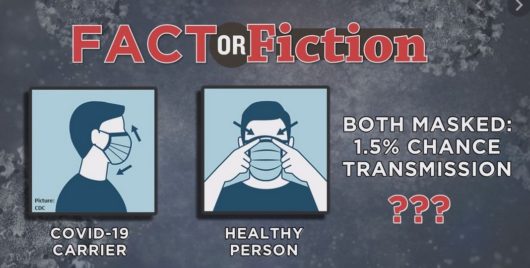Credible projections forecast an upswing in COVID-19 infection throughout the 2020 fall and winter seasons in North American and the northern hemisphere. To prevent disease and death, let’s succinctly review three of the most pressing disease control questions:
Do cloth masks really prevent infection?
Yes. Research from multiple sources, including Arizona State University and University of California San Francisco, demonstrate that cloth masks prevent asymptomatic infected persons from transmitting the disease to others. Such masks also protect well persons from contracting the disease from bystanders. How so? The COVID-19 virus is chiefly passed person-to-person through water droplets released when an infected person talks, coughs or sneezes. Simple cloth masks reduce the spread of these droplets.
Is COVID-19 really deadly?
Absolutely. Data from the World Health Organization demonstrates the mean case for case fatality rate (the chance of a person with COVID-19 infection dying from the disease) is 0.6 percent. For comparison, this rate is about six times higher than influenza. But, vulnerable persons, such as elderly and chronically ill, experience fatality rates as high as 25 percent. And remember, children do not necessarily suffer mild infection. Growing data document the risk of severe pediatric complications. All told, in 2020 COVID-19 infections has surpassed injuries as the third leading cause of death in the United States.
If I have had COVID-19, am I safe from a second infection?
No. Reports of re-infection are emerging. Nonetheless, some persons are relying upon newly available antibody (serology) tests as proof they are immune. Such tests, if positive, indicate that the person has already experienced the infection. However, contrary to popular notion, there exists no evidence to date that persons with COVID-19 antibodies are actually protected against future infection. In other words, positive antibodies are not a passport to reduce protective measures.
Many well-meaning people will object to such responses to these disease control questions. And hence, inevitable social friction. But precious loved ones, and many other social elements we hold dear, continue under threat. So, join me in being guided by the facts, rejecting even convenient fiction, and to these ends, enduring resulting friction.

